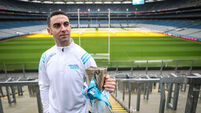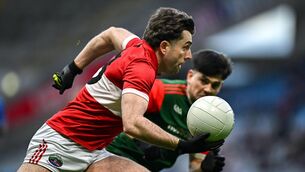'I’ll break your f**king two legs if you don’t f***ing perform'

By the summer of 1990, All-Ireland football champions Cork had Kerry’s number. So much so that Rebel fans were yelling ‘lock the gates’ as they dismembered the Kingdom in the provincial decider in Cork. However a bigger challenge loomed for Billy Morgan, Larry Tompkins, & Co — Meath. In his new book on Cork’s historic double season, reveals how Colm O’Neill turned from peripheral to pivotal figure on the road to GAA history.
Though Cork were fattened by the success of a first senior football All-Ireland in 16 years in 1989 — and they enjoyed the celebrations for the winter — there was no fear they’d lack motivation.














